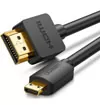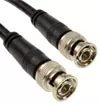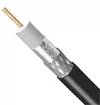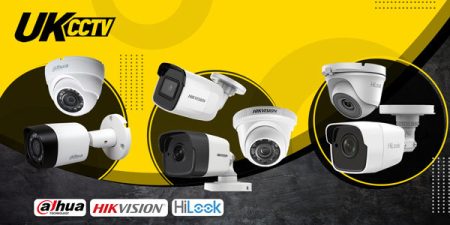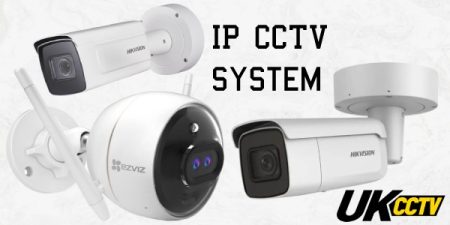Hard Drive For CCTV Recorder, Video storage is a critical component of any security camera system. That’s the point of having an entire CCTV system with video evidence of incidents that may occur around your property. While researching security systems, we sometimes determine whether we need a hard drive for a CCTV recorder, and the answer is complicated. Today’s security systems are capable of recording long hours of high-definition footage.
To answer this question, a security camera system DVR or NVR needs a hard drive to store recordings. You may end up with a design that only provides a live view feed. Additionally, many IP cameras have microSD card slots so that you can save video directly to the camera, but the footage will have a much shorter lifespan. The ukcctv website will tell you if your security camera needs a hard drive for CCTV recorder, how many hard drives you have, how long you can record, and when you don’t need a hard drive.
NVR Or DVR Hard Drive For CCTV Recorder
The security cameras are not intended to operate independently but are part of a CCTV system revolving around the recorder. This recorder can be a DVR (for analogue HD cameras) or an NVR (for IP cameras).
All security cameras send a video feed to a recorder, which stores the footage on its (internal) hard drive. The number of hard drives installed depends on the recorder’s model and manufacturer. Some recorders use two discs, four discs, or even eight discs. Hard drive for CCTV recorder
sizes range from CCTV hard drive 1TB to 12 TB per slot.
The more hard drives install and the larger their capacity, the longer the surveillance camera will record. Find out how long your video storage will last before purchasing a hard drive. Make sure to install a CCTV-certified hard drive, which is much more reliable and has a longer lifespan than regular computer hard drives.
Record Directly To Security Cameras Using A Micro SD Card
Some security cameras support microSD cards and have a built-in slot where you can install a microSD card. Card sizes vary from 64GB to 256GB. Read this article: Best microSD cards (memory cards) for security cameras.
The surveillance camera records footage directly to the microSD card in this scenario. You can play back and back up microSD videos with an app on your computer or smartphone. The downside is that microSD cards are relatively small compared to hard drives and can only record for a few days before overwriting begins. This solution recommends if you don’t need the entire security system. One or two cameras will suffice. Save money; the camera can store recordings on the built-in microSD card.
Cloud Storage Recordings
Most IP CCTV cameras or wireless CCTV camera systems with the hard drive, NVR, or DVR offer the option of cloud recording, eliminating the need for on-site storage and allowing cloud services to store recordings on servers. Depending on your needs, cloud storage providers can typically record for more extended periods, such as one to several months. Also, nothing will be recorded in the cloud if the internet is down or slow. You must ensure your internet is stable, and the faster, the better.
A potential drawback of CCTV cloud storage is the high associated costs. These providers typically work on a subscription basis. In other words, you pay a monthly fee. You don’t have to pay if you use the hard drive for CCTV recorder with your recorder. When choosing cloud storage, try to balance the cost of the service with physical hard drives on-premises.
Physical Storage
Surveillance video footage typically stores on conventional hard drives designed and built for use in surveillance systems. CCTV drives must withstand continuous service 24 hours a day, 7 days a week, without fail. On the other hand, regular hard drives weren’t designed for heavy use and are more likely to fail.
How Many Hard Drives For Need CCTV Recorder?
To understand how many hard drives you need for your CCTV system, you need to know how long you want to record, your recording capacity, and your budget. Determining the appropriate storage capacity for your security system is relatively straightforward. It would help to calculate lifetime (days required for storage), number of cameras, video resolution, and bitrate.
Additionally, recording when motion is detected can double or triple the days you can record on your hard drive. With motion detection, the CCTV system saves video only when triggered. If nothing happens, nothing save. Most security CCTV systems record motion detection by default today. However, if unsatisfied, you can set the system to record continuously (24/7).
In general, we recommend keeping monitoring records for at least 30 days. It will give you video evidence of everything that happened in the past month. However, many trading companies want up to 90 days of storage, which requires a large amount of storage.
A security system with 8 cameras may require 4 TB to 6 TB of hard drive for CCTV recorder space for 30 days with motion detection. For 16 cameras, you may need 8 TB to 12 TB of storage. For 32 cameras, you need a total storage capacity of 16 TB to 24 TB shooting in continuous mode may require double the amount. Important Note: Purchase a CCTV-compatible hard drive.
Recording Longer With Your Security Camera System
There are several ways to improve the efficiency of your video recordings and record more days with your CCTV security system without necessarily adding more hard drives or lowering the resolution.
- If you set your system to motion detection, it will record when motion is detected. Most storage does not check only when an incident needs to investigate. With motion recording, you can record twice or three times as much.
- Enable the system to record during certain times of the day when the camera is most needed. For instance, you can set your device to record when you’re out but not when you’re home. It significantly reduces the required video memory.
- You can adjust the frame rate, bit rate and resolution until you are satisfied with the picture quality. Lower values require less video memory. But don’t get too deep into it. Try to find the perfect balance.
- Filter out objects that unnecessarily trigger motion detection. The system is recording even if nothing is related; it just disables that point of the screen.
- Clean your camera monthly. Spider webs and other insects can sometimes trigger the camera for no reason. Wipe the camera occasionally to make sure there are no false triggers.
Conclusion Of This Article
In summary, a DVR can work without a hard drive, but you can’t record anything. You can only see the camera live on your screen. So without a hard drive, the DVR or NVR cannot record locally.
Some newer systems offer cloud recording. In other words, instead of recording to your local hard drive, save your footage to the cloud via your internet connection. If you buy the best DVR or NVR recorder, you can refer to the UK CCTV website.
How useful was this post?
Click on a star to rate it!
Average rating 0 / 5. Vote count: 0
No votes so far! Be the first to rate this post.



















